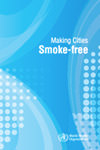2013
WKC Forum report: Suicide Prevention and Community Support
WHO Centre for Health Development (WHO Kobe Centre - WKC) organized a forum on “Suicide Prevention and Community Support” in Kobe, 19 December 2013. More than 40 participants came to the WKC forum from the general public, local governments and health workers to learn the current trends of suicide cases and deepen their knowledge on prevention and response efforts locally and globally.
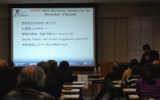
Dr Yutaro Setoya, Technical Officer of the Department of Mental Health and Substance Abuse (MSD), WHO HQ, reported about global trends and strategies for suicide prevention and presented on the WHO mhGAP Guideline. As concerns over the suicide prevention have grown globally, Member States agreed on a target of 10% reduction of the suicide rate in countries by the year 2020 at the 66th World Health Assembly in 2013. Dr Setoya announced that WHO will issue a first World Suicide Report in 2014. As Japan is advanced on the suicide prevention policy, further contribution from Japan to the global efforts for suicide prevention is expected, Dr Setoya said.
Dr Tadashi Takeshima, Director of the Centre for Suicide Prevention, Department of Mental Health Policy and Evaluation, National Institute of Mental Health, presented Japan’s fundamental policy on the comprehensive suicide prevention programme and emphasized that the key to reduce suicide is how the society as a whole can help people with suicidal thoughts to remove self-stigma. Statistically in Japan, suicide rates among the elderly have reduced while the rate among the youth has increased in recent years. Also, those who have attempted suicide and/or have harmed oneself are at the most risk of actually committing suicide, Dr Takeshima said. He also stressed that suicide prevention is a process to support them to retrieve their own freedom and the community as a whole need to support that process.
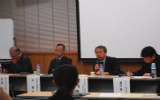
Mr Yasuo Hayashi, Director of the Suicide Prevention Section, Welfare Service for Persons with Disabilities Bureau, Health and Welfare Department of Hyogo Prefecture, presented the Hyogo Prefecture’s programme on suicide prevention. In Hyogo, suicide rates among people in their 20s and 40s haveincreased while the rates among people in their 50s and over 60 years old have decreased in recent years. From the local government perspective, Mr Hayashi presented Hyogo’s challenges to create “the society which no one will not be pushed to commit suicide”, such as implementing age-disaggregated projects for suicide prevention, strengthening the community system of watching over and early detection, and supports and cares for the bereaved.
As a representative of community support groups who provide free telephone counselling services, Mr Shigeaki Masaoka, Secretary General of Kobe Inochino Denwa, reported about their activities, suicide prevention efforts in Kobe City and their difficulty as a charity organization to balance their public relations activities for fundraising while protecting absolute privacy of consulters. Mr Masaoka reported that the number of telephone calls which Inochino Denwa receives annually is broadly flat since 2010, but more consulters hint their desire to commit suicide and/or confess their previous suicidal attempts during telephone counselling. He also expressed his deep concerns on the shortage of capable voluntary counsellors and the difficulty of their capacity building.
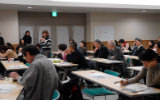
At the panel discussion and Q&A session, there were active discussions with the floor on actual suicide prevention and response projects on the ground, such as “Kobe G-P Net “(the comprehensive medical system to connect patients between Psychiatrists and General practitioners as team). Through discussions, it was shared among participants that there is still the need to deepen our understanding on suicide as a fact of attempting to kill oneself, to acknowledge repeating suicidal attempts as the highest risk factor of suicide, and to create more closer network among various actors at all levels in the society as a whole so as to reduce numbers of suicide cases.
Related links
- Presentation "Global Trends and Strategies for Suicide Prevention: WHO mhGAP Guideline" (Japanese)
Dr Yutaro Setoya, Technical Officer, Department of Mental Health and Substance Abuse (MSD), WHO HQ - Presentation "Suicide Prevention and Community Support" (Japanese)
Dr Tadashi Takeshima, Director, Centre for Suicide Prevention, Department of Mental Health Policy and Evaluation, National Institute of Mental Health - Presentation " Hyogo Prefecture's Suicide Prevention Programme" (Japanese)
Mr Yasuo Hayashi, Director, Suicide Prevention Section, Welfare Service for Persons with Disabilities Bureau, Health and Welfare Department of Hyogo Prefecture - Presentation "Activities of Inochino Denwa" (Japanese)
Mr Shigeaki Masaoka, Secretary General, Kobe Inochino Denwa
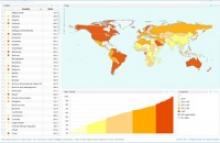
Request for Proposals: Developing a Guide for Urban Health Observatories
Since 2011, WKC has been conducting research and consultations on Urban Health Observatories (UHOs) as a potential institutional approach to improving the availability and use of local urban-level data for research, policy and practice to promote equity in health in urban settings.
Several milestones have been achieved so far. WKC organized an Expert Meeting on Urban Health Metrics in Kobe in February 2011, during which the experts recommended a comparative study of existing UHOs to identify good practices and to develop a guiding framework for UHOs. Subsequently, WKC undertook this research with the Belo Horizonte Observatory for Urban Health. The outcome of this research was recently published in the Journal of Urban Health.
In August 2012, WKC organized a Consultation Meeting on Local Urban Health Observatories in Amsterdam with an international group of scientific experts and representatives of international organizations and regional and local public health observatories. Based on the aforementioned research findings, the resulting UHO framework, and other inputs shared during the meeting, the expert group recommended that WHO continue with this work and develop a policy brief on the subject as well as a guide for UHOs. The experts identified several issues that would be important to address in a guide on establishing and sustaining UHOs; suggested a rough outline for the guide; and provided recommendations on the format and dissemination strategy for the guide.
Since then, the policy brief has been developed by WKC. Most recently, in September 2013, WKC organized a symposium at the International Conference on Urban Dynamics and Health in Paris, with current and former Directors of Urban Health Observatories in Barcelona, Belo Horizonte, London, and Strasbourg, respectively, as panellists. These panellists and other meeting participants expressed their support for the development of a WHO Guide for UHOs.
This Request for Proposals (RFP) seeks to identify a qualified professional (or team of professionals) to undertake the production of a guide for establishing, operating, and sustaining an Urban Health Observatory at a local government level, building upon the work that WKC and its collaborators have already achieved on this subject, and taking into consideration the recommendations and outputs from the consultation meeting in Amsterdam in 2012. The resulting Guide can be a valuable form of technical guidance which currently does not exist for WHO Member States and its constituents, especially at the local government level.
The deadline for submission is 10 November 2013.
Request for Proposals: Developing a Guide for Urban Health Observatories
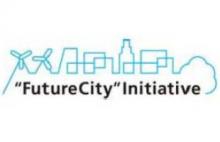
WKC at the 3rd International Forum on the “FutureCity” Initiative, Kitakyushu, Japan
The 3rd International Forum on the “FutureCity” Initiative was held in Kitakyushu on 19 October 2013, under the theme of “Creation of new value through integrating environmental, social and economic value.” The Forum was hosted by the Cabinet Secretariat and the Cabinet Office of the Japanese Government.
At the invitation of the Cabinet Office, WHO Kobe Centre (WKC) presented in the session dedicated to “Evaluation system of participatory governance toward self-sustained development”, and took part in a panel discussion with representatives from the Inter-American Development Bank, Malaysian Ministry of Housing and Local Government, and Keio University.
More information can be found on the website of the "FutureCity" initiative.
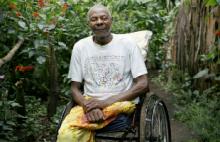
Advancing Technological Innovation for Ageing Populations in Asia
On this International Day of Older Persons (1 October), the WHO Kobe Center recognizes the contributions of older persons to our societies and reaffirms the UN Secretary-General Ban Ki-moon's call on countries and people to commit to remove barriers to older persons’ full participation in society while protecting their rights and dignity. With rapidly ageing populations in Japan and across the world, countries and communities are working to meet the needs and concerns of the world’s increasing number of older persons.
By 2050, the number of older persons will be twice the number of children in developed countries, and the number of older persons in developing countries is expected to double. This trend will have profound effects on countries and individuals. There is broad recognition that population ageing presents both a significant opportunity and a challenge.
As the UN Secretary-General stated in his message, the opportunity is to benefit from the many contributions older persons make to society. The challenge is to act on this understanding now through the adoption of policies that promote social inclusion and intergenerational solidarity. To tackle this challenge, innovative approaches and technologies are needed to promote greater quality of life, to reduce poor health, and to increase independence and productivity.
WKC is working to encourage greater technological and social innovation to assist ageing populations. In February 2013, WKC convened a unique Consultation with representatives from government, academia, industry and civil society on “Advancing Technological Innovation for Older Persons in Asia”. The conclusion of this meeting (highlighted in the report) identified the need for integrated approaches across government, industry, academia and civil society to encourage development of frugal innovations for medical and assistive devices, and to assure that they are available and affordable for growing ageing populations in an equitable manner.
Summary Report: Consultation on Advancing Technological Innovation for Older Persons in Asia
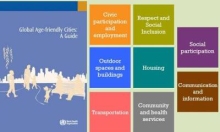
2nd WHO Consultation on Developing Age-friendly City Indicators, 8 September 2013, Québec City, Canada
The WHO Centre for Health Development (WKC) conducted the 2nd Consultation on Developing Age-friendly City Indicators on 8 September, 2013 in Québec City, Canada. This consultation is part of a series of consultations, started in 2012, organized by WKC in an effort to develop new technical guidance on monitoring the “age-friendliness” of cities. The objective of this consultation was to obtain expert opinion on how to advance the development of an age-friendly city monitoring framework and core indicator set. The consultation was held as a pre-conference meeting to the 2nd International Conference on Age Friendly Cities (9-11 September 2013, Quebec, Canada).
Fourteen international experts and seven WHO officers, representing five of the WHO regions, gathered for this one-day meeting. The main inputs for discussion were a draft monitoring framework and the preliminary results from a pilot study. Twenty cities from seven countries had so far participated in the pilot study which involved an evaluation of 61 indicators considered critical for monitoring age-friendliness of cities through previous consultation with officials and experts. The indicators were ranked by value scores assigned by local health officials and community representatives participating in the pilot study, and a short list of high-ranking indicators was constructed. During the meeting, the experts engaged in group work to provide specific feedback on the framework, the short-listed candidates for the core indicators and their proposed definitions.
The outcomes of the meeting suggest possible modifications to the structural and visual aspects of the framework, a narrower set of core indicators, and the development of an assessment tool that would help users apply the framework and core indicators to their own local context. Additional inputs will be sought before finalizing these products through further consultations with relevant experts as well as with local health officials and community representatives in Member States.
If you are interested in engaging in future consultations, please contact WHO Kobe Centre.
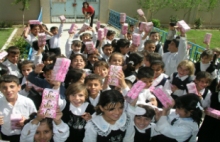
Key documents on Social Determinants of Health now available in Japanese
A group of Japanese experts on social determinants of health (SDH) has translated several key documents related to SDH into Japanese. These include the following WHO documents: 1) the executive summary of the Final Report of the WHO Commission on Social Determinants of Health; 2) the World Health Assembly resolution on reducing health inequities through action on the social determinants of health (WHA62.14); 3) the summary report of the World Conference on Social Determinants of Health (Rio de Janeiro, Brazil, 19-21 October, 2011); 4) the World Health Assembly resolution on the outcome of the World Conference on Social Determinants of Health, and 5) the Adelaide Statement on Health in All Policies, which resulted from a WHO-supported consultation. Selected chapters from the WHO report, “Equity, social determinants and public health programmes”, edited by E. Blas and A.S. Kurup, are also being translated.
These translations effectively remove the language barrier in accessing these essential documents for many Japanese policymakers and scholars. It is expected that these will serve as valuable resources as national efforts are made to achieve the renewed “Healthy Japan 21” targets, which include the reduction of health inequity through action on the social determinants of health. The translations were prepared by a Japanese research group led by Dr Toshiyuki Ojima (Hamamatsu University School of Medicine) and Dr Katsunori Kondo (Nihon Fukushi University) with funding from the Ministry of Health, Labour and Welfare, Japan. Several members of this group are regular contributors to the WHO Kobe Centre’s work on ageing and health metrics. Permission for the translations was granted by WHO and a technical review of the translation was performed by the WHO Kobe Centre.
- Executive summary of the Final Report of the WHO Commission on Social Determinants of Health
- World Health Assembly resolution on reducing health inequities through action on the social determinants of health (WHA62.14)
- Summary report of the World Conference on Social Determinants of Health (Rio de Janeiro, Brazil, 19-21 October, 2011)
- World Health Assembly resolution on the outcome of the World Conference on Social Determinants of Health (WHA65.8)
- Adelaide Statement on Health in All Policies
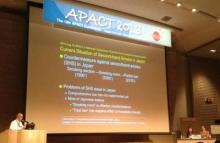
WKC at the 10th APACT Conference
The 10th Asia Pacific Conference on Tobacco or Health (APACT) was held in Chiba, Japan, 18-21 August 2013, under the title “Ending the tobacco epidemic – protecting and keeping healthy lives”. 785 delegates from 42 countries gathered to discuss current issues related to tobacco control and linkages with the non-communicable disease epidemic.
The WHO Kobe Centre (WKC), in coordination with WHO Headquarters and the WHO Regional Office for the Western Pacific (WPRO), organized a pre-conference workshop on Sunday, 18 August aimed at training city officials, civil society and health personnel in making cities smoke-free through the development of comprehensive local legislation, to protect the public against the harmful effects of second-hand smoke. This training is part of current efforts from WHO and its partners to tackle second-hand smoke exposure in cities.
22 delegates from Japan, Thailand, China, India, Indonesia, Korea, Singapore and Bangladesh attended the training, and will form a contingent of committed professional that may in turn train city officials and tobacco control stakeholders.
Training material available to the participants under the form of a workshop guide can be accessed below, as well as a facilitator workbook for those who aim to replicate such training in their city. An important resource is the WHO publication ‘Making your city smoke-free’ which provides lessons learned and guidance on developing legislation at the city level to protect the public against exposure to second-hand smoke. All these three documents are available to download in the links below.
Resources:
Booklet
Training material
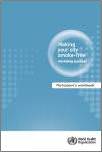 Making your city smoke-free workshop package:
Making your city smoke-free workshop package:
Participant's Workbook
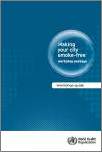 Making your city smoke-free workshop package:
Making your city smoke-free workshop package:
Workshop Guide
Posters:
WKC was also selected to present three posters highlighting results from the recent research conducted with Kobe Pharmaceutical University and University of Occupational and Environmental Health, Japan.
- Assessing the compliance of the ordinance banning smoking on selected streets in Kobe City, Hyogo, Japan
- Awareness of street smoking ban regulation in Kobe city: Results of interviews from a pedestrian survey
- The impact of designated smoking areas in where outdoor smoking is banned: The case of Kobe City
More information on the APACT can be found here.
For additional information, please contact WHO Kobe Centre.
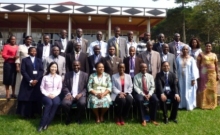
Intercountry Urban HEART Report Back Meeting in Africa
The WHO Regional Office for Africa and WHO Uganda, in collaboration with WHO Kobe Centre (WKC), organized the Urban HEART Intercountry Report Back Meeting in Entebbe, Uganda, 17-19 July 2013. WKC provided a global update on the status of Urban HEART implementation and offered further technical guidance to country and city officials on using Urban HEART in their respective contexts.
Representatives from eight African countries attended the meeting (Algeria, Burundi, Congo-Brazzaville, Ethiopia, Gabon, Kenya, Mali, Uganda) and presented their progress in addressing urban health. Congo-Brazzaville, Kenya and Uganda are currently implementing Urban HEART, while the other countries have initiated the process for Urban HEART.
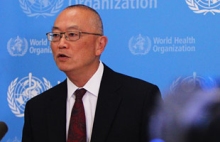
Emergency Committee advises on MERS-CoV
An Emergency Committee convened by WHO’s Director-General under the International Health Regulations (IHR) to assess the Middle East Respiratory Syndrome – coronavirus (MERS-CoV) situation today unanimously decided that conditions for a public health emergency of international concern have not yet been met. Director-General Dr. Margaret Chan agreed with the Committee’s advice that the situation is of great concern, although it does not constitute a public health emergency at this time.

IAGG/WHO Special Symposium on Age Friendly Cities – Metrics and Evaluation Issues
The WHO Kobe Centre organized the “IAGG/WHO Special Symposium on Age Friendly Cities – Metrics and Evaluation Issues” at the 20th IAGG World Congress of Gerontology and Geriatrics on 26 June, 2013, in Seoul, Korea. The Symposium received sponsorship from the Seoul Metropolitan Government, which recently joined the WHO Global Network of Age Friendly Cities and Communities.
The World Congress of Gerontology and Geriatrics is a major vehicle through which IAGG achieves its objectives. Held every four years, internationally recognized experts in gerontology and geriatrics share their knowledge and experience through plenary presentations, invited symposia, paper and poster sessions. The 20th World Congress of Gerontology was held in Seoul, Korea from June 23rd to 27th, 2013.
The IAGG/WHO Special Symposium featured WHO Kobe Centre’s presentation of its achievements so far in developing indicators for monitoring the age-friendliness of cities, globally. The Symposium was chaired by John Beard, Director, WHO Dept of Ageing and Life Course. Other presentations highlighted age-friendly city initiatives and evaluation efforts among the Global Alliance for Healthy Cities in the Western Pacific Region and Japanese municipalities participating in the Japan Gerontological Evaluation Study (JAGES), as well as in the Age Friendly Cities of Ottawa, Canada and Seoul, Korea. Active discussions with the audience generated valuable inputs which will contribute to the further development of indicators for age-friendly cities.
Official Programme of the 20th IAGG World Congress:
IAGG/WHO Special Symposium on Age Friendly Cities– Metrics and Evaluation Issues
Programme:
Presentations:
- Developing Global Indicators for Age Friendly Cities
Dr Megumi Kano, WHO Kobe Centre - Healthy Cities for Active Ageing in the WHO Western Pacific Region
Dr Katrin Engelhardt, WHO/WPRO - Status and Future Plan of Age-friendly City Seoul: Its Evaluation and Development Plan
Dr Sang-Chul Lee, Seoul Welfare Foundation, Seoul, Korea - JAGES HEART 2012: Achievements and challenges
Dr Katsunori Kondo, Nihon Fukushi University, Nagoya, Japan - Testing the WHO Global Age Friendly City Indicators in Ottawa, Canada
Dr Louise Plouffe, International Longevity Centre, Rio de Janeiro, Brazil - Developing Indicators for Age Friendly Cities
Mr Amit Prasad, WHO Kobe Centre
Related links
International Association of Gerontology and Geriatrics (IAGG)


